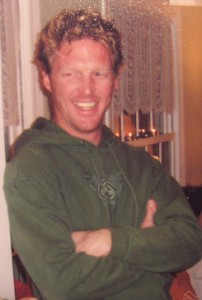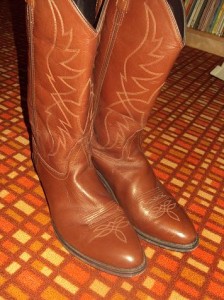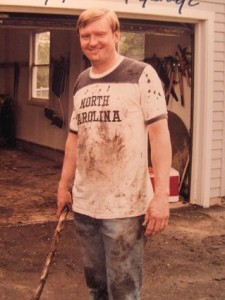My Uncle Edward had a wonderfully affirming statement each of us heard on our birthdays: “God was good to us on…. “ and he filled in the birth date. My morning Facebook comment to Nelson today continued that tradition: “God was good to us on January 26, 1973.” That’s when our firstborn came into the world, ushering Nate and I into parenthood and changing everything. Nelson turned 37 today in Honolulu, Hawaii, where he’s rehabbing a high-end condo with a friend. I text him pictures of icicles. He texts me pictures of palm trees.
This baby arrived weighing 10 pounds and suffering the intense pain of colic. Our entrance into parenting was accompanied by round-the-clock screaming and a newborn who grew skinnier each week for ten in a row. We were beside ourselves with worry until the morning he suddenly awoke smiling. The colic and crying were gone, and life with baby Nelson became a delight.
By the time he was three, his vocabulary was extensive and his thoughts deep. He said, “Why do I have to put the toilet seat down when half the people are boys? You should tell the girls to put it up when they’re done.” Nelson has always had a good “thinker”.
In recent weeks when Nate was sick, the father-son roles reversed and it was Nelson’s turn to tend to Nate round-the-clock, which he willingly did. Since then, he and I have had many a fireside chat, round-tabling the harsher realities of life (and death). His deep roots in Scripture have kept us on truth’s track, and I’ve learned much from this son.
As a teen Nelson gave Nate and me a run for the money. Firstborns have a difficult assignment, being at the head of the pack, having to break all the new ground. It’s a burden to be defined as the good example for those following, not to mention the problem of having parents who don’t know what they’re doing.
Although Nelson and his father weren’t cut from the same cloth, they listened carefully to each other and grew to appreciate their differences. When Nelson was acting out in high school and continued with some bad choices for a time after that, I often grew frustrated and wanted to lash out in verbal judgment. Nate inevitably calmed me with “wait a minute” and became the father of second chances. Eventually Nelson surpassed our best expectations.
He has traveled the world, much of it in conjunction with Youth With A Mission, first as a student and later as a leader. He has friends everywhere and keeps current with each one, managing to be on hand for milestone events in many of their lives.
Last summer he felt it was important to sell his landscaping company in Tennessee, a business he’d pursued with vigor for 15 years. At the time, he said he felt like the biblical Abraham who was told to leave the familiar for the unknown. Nelson sensed it was God pushing him, so he moved forward in faith, knowing the reason for leaving landscaping would become clear in God’s time.
Within two weeks a buyer had stepped forward and the business was sold. After Nate and I learned of his pancreatic cancer, Nelson was the first one to walk through our door in Michigan, unencumbered by September’s busy landscaping season and free to be with us for the duration.
One of Nelson’s many talents is enabling others to use their gifts. He’s a pro at delegating responsibilities and releasing control so others can shine. He can also fix what’s broken, build up what’s broken down and minister to broken hearts.
His top priorities are to know more of God and his Word, to obey what he learns there and to be available to others. In Nate’s last days, he referred to Nelson as “a son with sterling character,” which is exactly what happens when someone strives to live like Christ. No parent could want more.
And once in a while I still find the toilet seat up, which proves he’s still promoting his equal opportunity program with consistency.
“Because he loves me,” says the LORD, “I will rescue him; I will protect him, for he acknowledges my name. He will call upon me, and I will answer him; I will be with him in trouble. I will deliver him and honor him. With long life will I satisfy him and show him my salvation.” (Psalm 91:14-16)






